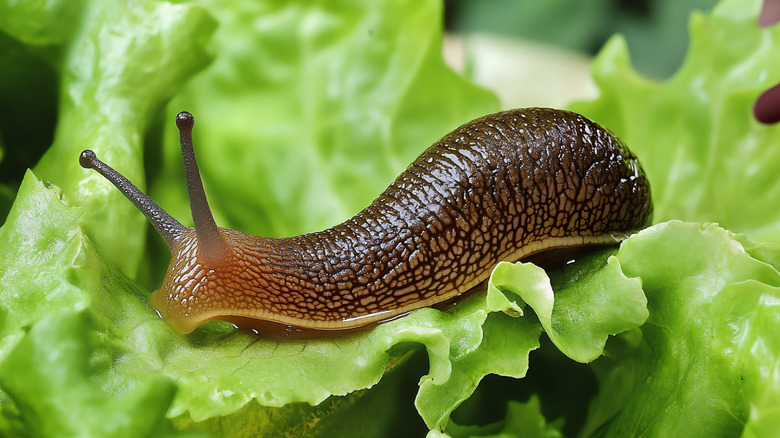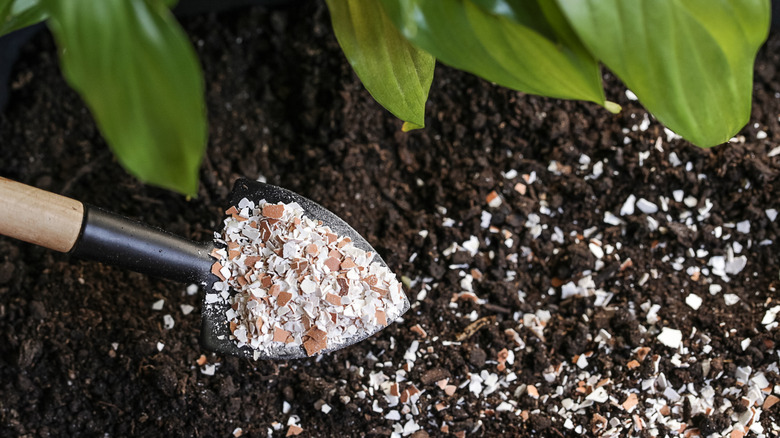Do Eggshells Really Keep Slugs & Snails Out Of The Garden? Here's What To Know
Slugs and snails are legless, slimy mollusks that love to chew on foliage, fruits, and vegetables. They come out at night, leaving trails of dried slime as evidence they've been munching their way through your garden. They also lack waterproof skin, so they're particularly active in damp weather since the humidity helps keep their skin moist. Crushed eggshells might seem like a plausible barrier to thwart snails and slugs because of their sharp edges, but unfortunately, there's no evidence that this method works. Pests have no problem making their way across the shells to get to your plants.
Snails and slugs are particularly fond of small succulents, seedlings, low-hanging fruit, and even bark. If their feeding damage is minor to moderate, it typically won't have a major impact on the plant, but severe infestations can injure plants and reduce fruit or vegetable yield. Since snails and slugs are active at night, you're unlikely to catch them in the act of feeding; it can be difficult to identify what's causing the irregular holes in your plants' leaves, especially since other chewing insects like caterpillars and earwigs create similar holes. If you haven't seen any slugs or snails in your garden, the dried slime trail they leave behind should be a clue.
There is no rule against using eggshells in your garden. Even if they don't deter pests, they will at least add nutrients to the soil once they decompose. They're rich in calcium, so if your garden needs a nutrient boost, spread ground or crushed eggshells among the plants, or add eggshells to your compost pile.
Natural slug deterrents that actually work
Eco-minded gardeners may prefer using natural products like eggshells over chemical control for slugs and snails. Luckily, there are other non-chemical options that have been proven to be effective, unlike eggshells. Creating a garden that's inhospitable to snails and slugs can be as simple as changing your watering schedule. Irrigate your plants in the morning so the leaves and soil have time to dry before slugs and snails come out in the evening. Stake plants like tomatoes to keep fruits and vegetables off the ground, prune branches that block the sun, and improve your soil's drainage if it's consistently damp. Avoid planting any slug-attracting plants in your garden and instead opt for plants that they don't like, such as creeping phlox (Phlox stolonifera) and blue sedge (Carex flacca).
If the damage to your garden isn't severe, remember that not all snails and slugs are pests; in some cases, they occupy a useful spot in the ecosystem. They're part of the diet of many other creatures, including beetles, toads, and birds. There are even some predatory snails that eat other slugs and snails. Eggshells may not keep these slimy creatures away, but letting the food chain run its course can help.

